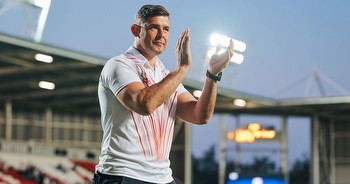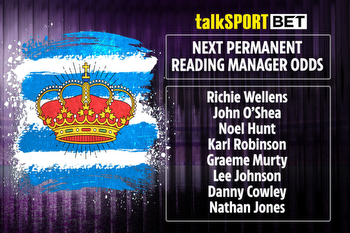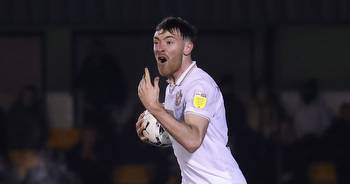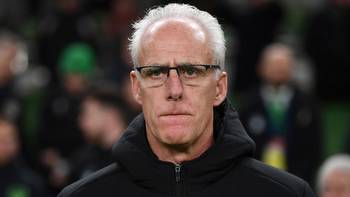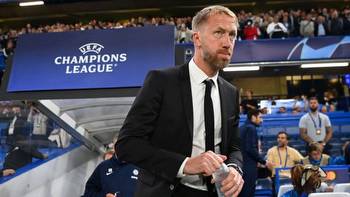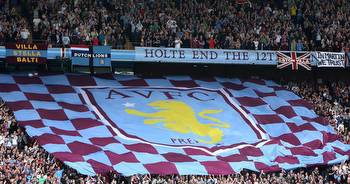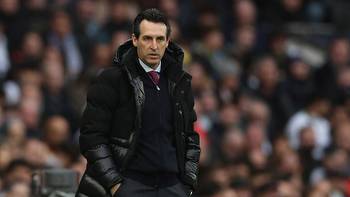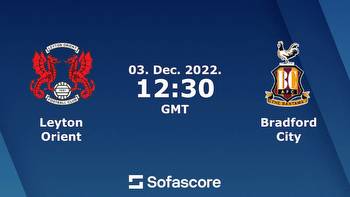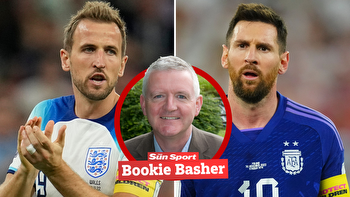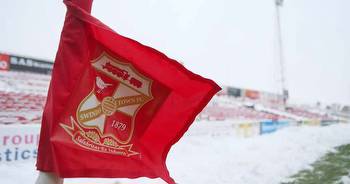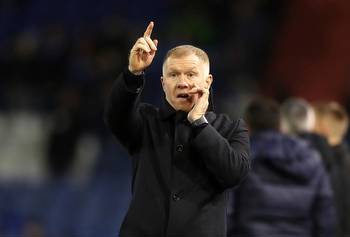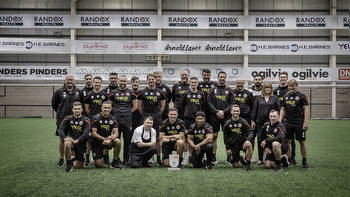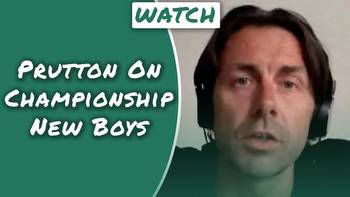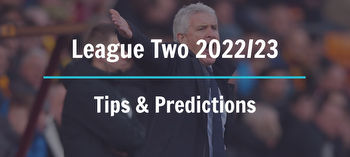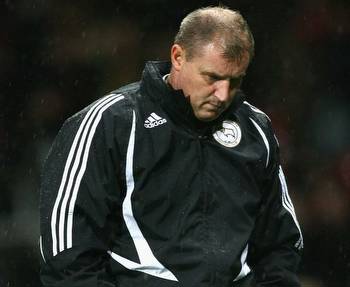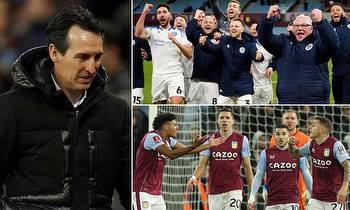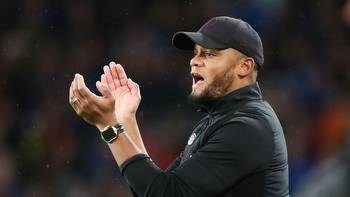League Two 2022/23: Top Five Managers of the Season
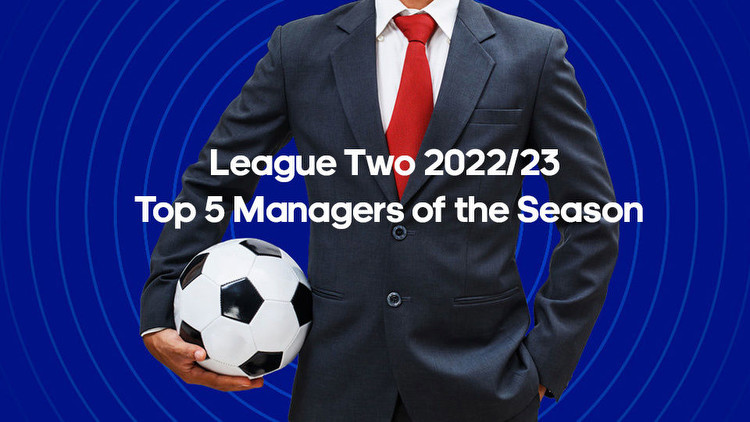
Top 5 League Two Managers of the Season
On to League Two we go as EFL expert Gab Sutton picks out his Top Five Managers of the 2022/23 season...
5. Pete Wild
After ending their 48-year Football League hiatus in 2020, Barrow’s return to the EFL had not been smooth sailing.
Following 20th and 22nd-placed finishes, avoiding the drop by five and six points respectively, the Bluebirds needed to get this appointment right to allow themselves to grow within the league, rather than continue to circle the proverbial drainpipe.
One crucial appointment was Iain Wood, who has made a huge difference to recruitment and day-to-day operations in his role as Sporting Director.
One of Wood’s first moves was to appoint Pete Wild as Manager, and he’s proved an inspired choice – though not a huge surprise to anyone who followed Wild’s previous work.
The former Under-16s coach led Oldham to seven league wins in 15 across two spells in a time of strife, not to mention an FA Cup run including a famous victory at Fulham.
The Royton-based boss then led Halifax to two Play-Off finishes in three seasons, with one of the lowest budgets in the National League, whilst nurturing a plethora of future EFL talent.
An energetic figure on the touchline, Wild has built a team that mirrors him on the field: relentless, high-pressing, with quick transitional attacks.
By establishing a clear playing identity, and recruiting accordingly, Barrow have been able to bridge the budgetary gulf and challenge for the Play-Offs in League Two, finishing in a respectable ninth-place.
The Bluebirds are one of the best, most aggressive second-ball teams in the league, and if they can add some physicality up top to make things stick, without compromising the energy required in attack, they could go up another gear next season under Wild’s guidance.
4. Paul Simpson
When Paul Simpson returned for his second spell at Brunton Park, Carlisle were only going one way.
The Cumbrians were 23rd in League Two, a point off safety having played a game more, when a triple announcement changed their trajectory in one day.
Unpopular Director of Football David Holdsworth departed on 23rd February, and so did Keith Millen, whom ‘Simmo’ replaced as manager, bringing back some hope and optimism at a tough time.
What followed was five wins in six, a run that took United out of the dogfight, followed by April’s news that the 56-year-old had agreed to stay on, signing a three-year contract.
Perhaps the club has genuinely changed, internally, structurally and fundamentally, through Simpson’s leadership, or perhaps there’s simply the perception of change because of that leadership, and results on the field – perhaps it’s a combination of both.
Either way, the fact Simpson was persuaded to stay on has eased some of the political tension between club and fans, which has created the space for United to achieve what they have this season – jumping from 20th to fifth.
This has been achieved despite the injury crisis from the first half of the campaign, in which the list of absentees at times extended into double figures, yet the Cumbrians kept finding a way.
Odds correct as of 2023-08-13 16:11 Odds subject to change.
Take September’s 2-1 win at Grimsby, for instance, when the entire, seven-man substitute’s bench had an average age of 20, and just 64 EFL appearances between them, thus changes were kept late and to a minimum.
In those circumstances, the team dug in, inspired by leader Paul Huntington at the back, while the likes of Callum Guy and Jordan Gibson – once perceived as technical enigmas – looked ‘Simmofied’, now with the qualities to battle in adversity.
It’s that sort of spirit that kept United’s points tally ticking over while options were limited, before the club strengthened with four new additions in January: Joe Garner on a permanent deal, and Jack Robinson, Alfie McCalmont and John-Kymani Gordon on loan.
Carlisle haven’t quite been able to kick on into the top three, as hoped, and injuries have still affected them in the second half of the season, albeit more moderately.
However, Simpson can take immense pride in unearthing the quality of Owen Moxon, who has proved one of the signings of the League Two season, with the energetic midfielder’s Hollywood passes lighting up the division.
Promotion or not, it’s been a fantastic year’s work for Simpson: when he next leaves United a second time, it may also be in League One.
3. Steve Evans
Stevenage were a mere place outside the drop zone when Steve Evans took charge in March of last season, with their destiny outside their own hands.
13 points from nine games under the demanding Scot kept the Boro in the EFL but, after five bottom-half finishes in seven seasons, not to mention a fortuitous reprieve as recently as 2019/20, expectations were modest.
With 13 summer additions and as many as 19 permanent departures, fans would have taken a midtable season of consolidation, and only begin to dream of a season like this one the year after.
Instead, it’s been an instant transformation, with 12 of the 23 additions over the course of the campaign being roaring success stories, a few of them unable to deliver as hoped due to injuries, and a further few not featuring as much as they would have liked but still contributing huge, memorable moments.
With that kind of hit rate, Evans deserves huge credit, having played a central role in recruitment, whilst getting the best out of last season’s strugglers: Luther Wildin, Terence Vancooten, Jake Taylor, Luke Norris and Jamie Reid.
It might seem churlish to single out a star performer for Stevenage, when so much of their success has been down to the collective, but this writer’s League Two Player of the Year – over Andy Cook and Sam Hoskins – would be Carl Piergianni.
Relegated with Oldham last season, Piergianni alerted Evans’ attention with a man-of-the-match performance when the Latics won 1-0 at Broadhall Way last season in a relegation six-pointer, and was out of contract that summer.
Boro then snapped Pidge up, and it’s one of the greatest decisions ever made in the history of the club.
Piergianni epitomizes this Stevenage team with an outstanding mentality, and incredible leadership qualities.
The 31-year-old has won 8.4 aerial duels per game, more than anyone else in League Two, despite the fact he wouldn’t be expected to dominate those battles on paper at 6’2”.
Piergianni makes up for not being particularly tall with outstanding reading of the game, and a simply relentless drive which sets the tone from the back.
The reason Stevenage have only lost nine of their 46 league games is because opposing teams must fight so hard to win consecutive duels against that team, and ‘Pidge’ is a huge part of that because he so rarely loses out.
The same can be said for Danny Rose, who has an insatiable work ethic up top and is outstanding in the air at 5’9”, which has seen him forge a strong partnership with “big goal Reidy” in the closing weeks of the season, showing extraordinary stamina at a stage of the season in which no other strikers were available.
The best Stevenage teams, throughout history, have been big, strong, tough, gnarly, tenacious and disliked by most outsiders, whilst still having one or two individuals capable of producing moments of magic.
Sometimes a club and a manager are simply tailor-made for one another, as though their conjoining were destined, and it feels a little bit like that with Stevenage and Evans.
2. Richie Wellens
Richie Wellens had proven himself an excellent manager in the first three seasons of his career.
He got 46 points from 37 League One games out of an Oldham side that had taken four from their first nine in 2017/18, getting the best out of Johnny Placide, Kean Bryan, Rob Hunt, Gevaro Nepomuceno and Eoin Doyle with attacking football.
Ultimately, the Latics were relegated through issues outside Wellens control: chiefly ownership issues, in Abdallah Lemsagam’s first year, and also the absent of poacher Doyle at a crucial stage.
The Irish poacher, though, would play a crucial part, along with Hunt, top scoring as Wellens inspired Swindon to the League Two title in 2019/20, after taking charge with the team 17th in November of the previous campaign.
That success was followed by a tough couple of years for the Mancunian motivator, who has since admitted to making one or two mistakes at Salford, before a move to Doncaster proved the wrong choice, with the former Rovers midfielder struggling to keep them up in League One with a non-league budget.
Suffice to say, perhaps, that Wellens arrived at Leyton Orient with something of a point to prove, and prove it he did.
Inheriting a team that was out of form and had forgotten how to score, the O’s finished 2021/22 with seven wins in his 13 games in charge, before a quiet summer of minimal turnover allowed them to continue that momentum.
Orient won a stunning 16 of their first 21 league games of the following campaign, and weirdly two of their best performances in that sequence were games they didn’t win: Swindon away, and Newport at home, with the Londoners drawing and somehow losing respectively.
Winning the title with goalkeeper Lawrence Vigouroux and Hunt, as he did at Swindon, Wellens has built an excellent footballing side that’s also not afraid to play forward when it suits them, and mix it when required.
Much like the 43-year-old’s Swindon side had the experience and tenacity of Anthony Grant in midfield, his O’s side has that of Darren Pratley, next to dazzling ball-carrier Idris El Mizouni and classy creator George Moncur.
Skillful wide man Paul Smyth has been a livewire on the flanks, where combinations have been key as Wellens has favoured technical, reliable full-backs with an engine, who can tuck into midfield at certain moments: see Hunt, Tom James and Jayden Sweeney.
Wellens is an intense character with a huge drive and hunger, which helped him have the Football League career he had as a player, and perhaps even more so as a manager.
After two titles in League Two, Wellens can now look forward to working in League One at a more stable club that can compete financially.
#AD 18+ New customers only. Opt in, bet £5 at odds 1/1 or greater within 7 days of registering, no cashout. Get 3x £10 Free Bets, set events at odds 1/1+. 7 day bonus expiry. Card payments only. T&Cs apply, begambleaware.org | Please gamble responsibly
1. Jon Brady
Richie Wellens could just as easily have got this blog’s Manager of the Year award for winning the title, and wasn’t without challenges along the way, nor for that matter has Steve Evans, but Jon Brady edges it by a fraction.
Why? He’s had two major hurdles to overcome.
The first was psychological: the Cobblers missed out on automatic promotion by virtue of goals scored last season, because while they won 3-1 at Barrow on the final day and thought they’d done enough, Bristol Rovers happened to play a youthful, long-relegated Scunthorpe side and hit seven goals past them.
After that, Teyn lost in the Play-Off Semi-Final to Mansfield and while Sam Hoskins has said in interviews that the group had put 2021/22’s heartache behind them, treating this season as a new beginning, the scars would surely have affected anyone.
Brady’s strength of character to get back off the canvas and go again is incredibly admirable, but there were further challenges in the run-in, after the brilliance of Jon Guthrie, Marc Leonard, Mitch Pinnock, Hoskins and others had got them into contention.
Northampton approached the squeaky bum territory with up to 10 players out injured, at a time when the pressure is on, and most teams would want to be able to lean on some semblance of tactical familiarity.
12 of the players brought in this season have spent time on the sidelines, and while in certain cases like Josh Felix-Eppiah and Josh Harrop they came with a pre-existing risk, there is also a huge amount of misfortune.
In March and April, there were times when 4-6 defenders were absent at a time, including at one point four full-backs, which massively stretched Brady’s adaptability – and to find the required consistency in those circumstances was an enormous ask.
Hoskins, for instance, had to play right-back on the penultimate game of the season, despite him being top goalscorer and one of the best attacking players in the division, before Lintott came into the side at Tranmere on the final day.
For the Gillingham recruit to slot in as well as he did at Prenton Park on his first start after injury speaks volumes for Brady’s man management qualities.
It’s one thing to be able to design a blueprint for promotion in June, when the best XI is fit in your mind and everything should go swimmingly, but where managers really earn their corn is when it hits the fan and they have to find solutions quickly in adversity.
All the while, Brady has evolved the style at Sixfields from the super-direct outfit that won promotion from this level under Keith Curle in 2019/20, before a turgid time under him in League One the following season, they now have a team that can play as well, getting the best out of technicians like Leonard, Pinnock and Hoskins.
Brady has done that, and now sets about the challenge of keeping Northampton in League One – a bit more luck on the injury front wouldn’t go amiss!
#AD New UK customers (Excluding NI) mobile only. £30 in FREE Bets (FB) as £20 in sports bets & a £10 casino bonus (CB). Min stake £10. Min odds Evs. FB applied on 1st settlement of any qualifying bet. FB 7 day expiry. 1 FB offer per customer, household & IP address only. Payment restrictions. 14 days to accept £10 CB, then active for 3 days. CB 5x wagering & max redeemable £100. Game restrictions apply. Cashed out/Free Bets won’t apply. 30 days to qualify. 18+. T&Cs apply

